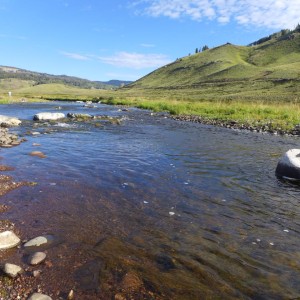*This article is not a substitute for the advice of an attorney.*
I have been traveling a lot of miles lately speaking at various extension programs across Texas. Last week I was in West Texas where I spoke at three great presentations in Rankin, Big Lake, and Van Horn. This week I’ve been in Bell County and in Canton speaking at cattlemen’s conferences. Welcome to the new readers from these presentations! Here are a few ag law stories making the news over the last couple of weeks.
*Texas Supreme Court Will Not Hear Case Involving Keystone Pipeline. Texas landowner Julia Trigg Crawford has lost her battle against the Keystone Pipeline’s use of eminent domain to bring its line across her family farm in East Texas. Last week, the Texas Supreme Court denied her petition for review of the Texarkana Court of Appeals decision finding that condemnation was proper. [Read article here and blog on Court of Appeals opinion here.]
*Rio Grande Water Officials Meet. Last week, water officials from Colorado, New Mexico, and Texas met to discuss the Rio Grande Compact. Not surprisingly, the severe drought and the lawsuit between Texas and New Mexico were at the top of the list of topics. [Read article here and here.]
* Mexico Water Deficit Continues to Grow. Mexico’s water deficit pursuant to a treaty with the United States has now grown to 870,000 acre feet. As you read about in detail in this prior blog post, Mexico has an obligation to provide the United States with 1.5 million acre feet of water in a five-year cycle that is set to end in October 2015. [Read article here].
*Idaho “Ag Gag” Law Challenged in Federal Court. The so-called “ag gag” law recently passed in Idaho has been challenged in federal court. [Read Complaint here.] The law prohibits recording or photographing an agricultural operation without permission and makes doing so subject to criminal penalty. A coalition of animal rights organizations and journalists filed suit to overturn the law. These groups claim that the law violates their First Amendment rights, the equal protection clause (by discriminating against animal rights activists), and the Supremacy Clause of the United States Constitution. [Read article here.]
* Is CRP Income Subject to Self-Employment Tax? While I do not claim to be any kind of tax expert, there is an important case currently on appeal in the U.S. Tax Court that could significantly impact farm operators. The case, involving a Texas resident who inherited land in South Dakota that was enrolled in CRP, involves the question of whether owning land enrolled in the CRP program subjects those payments to self-employment tax. Last year, the Tax Court held that signing the CRP contract by the landowner resulted in the payments being subject to self-employment tax. The case is currently on appeal. According to Iowa State University professor Roger McEowen, this is the first court case to reach this conclusion. Importantly, if you are receiving CRP income, talk with your attorney and accountant about whether you are subject to a self-employment tax. [Read articles here and here and Tax Court opinion here.]
*Indiana Ag Lawyer Travels Abroad. Indiana agricultural attorney, Todd Janzen, recently returned from a multi-country agricultural tour to Europe and Africa. He is posting a six-part blog series on what he observed and learned in a number of countries. His posts are really interesting and can be read at his blog by clicking here.
*Upcoming Brown County Leasing and Easement Program. On April 8, I will be in Brownwood giving a presentation on agricultural leases and easements for area landowners. Both of these issues are commonly faced by landowners and the program will provide an overview of the law regarding leases and easements (specifically focused on pipeline easements) and offer negotiation pointers for attendees. [Read article here.]












